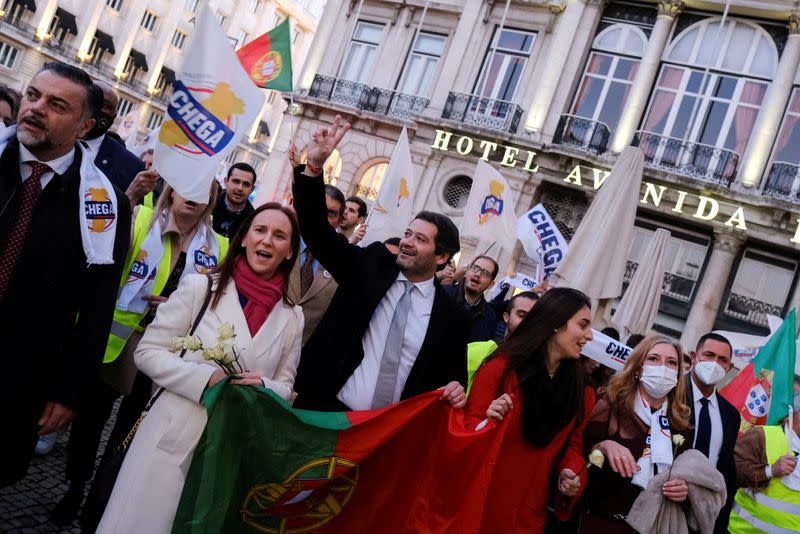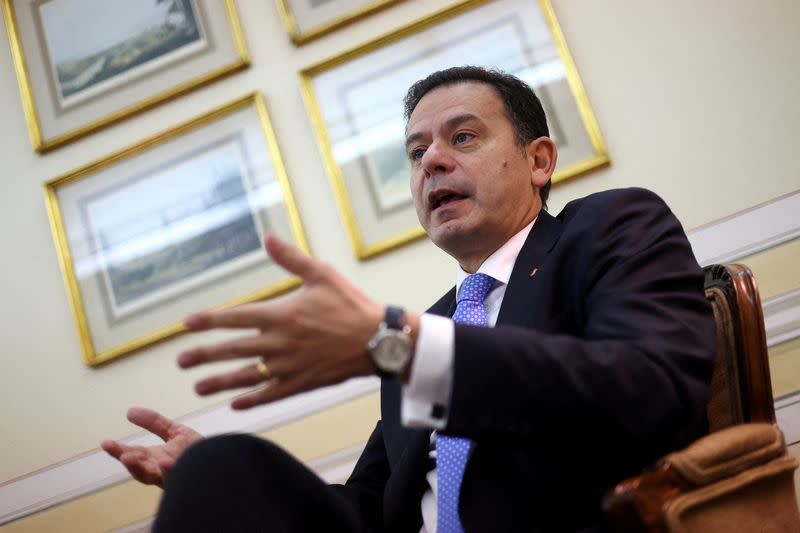Portugal's centre right leading in poll, far right may end up kingmaker
By Sergio Goncalves
LISBON (Reuters) - Portugal's opposition Democratic Alliance is set to win the most votes at a snap election on March 10 but fall short of a parliamentary majority, a poll showed on Tuesday, an outcome which could see it relying on support from the far right.
The survey by CESOP/Catholic University for RTP broadcaster and newspaper Publico put support for the centre-right Alliance at 32%, ahead of the governing centre-left Socialist Party at 28%, in contrast with several other recent opinion polls.
While both have gained some ground compared to the pollster's previous survey in November, the far-right, anti-establishment party Chega also saw its support rise to 19% from 16%, reinforcing its prospects of becoming a kingmaker.
Chega leader Andre Ventura told Reuters last month his party would demand to be part of a right-wing coalition government in exchange for parliamentary support.
However, the head of the main opposition Social Democratic Party (PSD) that leads the three-party Democratic Alliance, Luis Montenegro, has rejected any type of agreement with Chega.
The snap election, Portugal's second in as many years, was called after the resignation in November of Socialist Prime Minister Antonio Costa over an investigation into alleged illegalities in his government's handling of large green investment projects. He has denied any wrongdoing.
The latest poll showed a situation similar to the outcome of Sunday's regional election in the Azores Islands, where the alliance landed three seats short of an outright majority. Chega, which secured five seats, sought to negotiate a deal, which was rejected by the local PSD.
Montenegro said this could be replicated nationally, with a potential minority government that could only be overthrown if the Socialists teamed up with Chega.
"It's an inspiration for what we're going to do from March 10 for the whole country," he told reporters.
CESOP surveyed 1,192 people between Jan. 24 and Feb. 1.
(Reporting by Sergio Goncalves; editing by Andrei Khalip and Kylie MacLellan)


